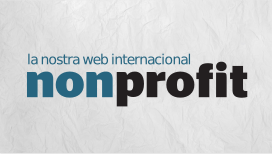About Spanish deportees in the nazi camps
On 7 and 8 September a conference in Berlin will address the fate of the Spanish and Catalan people who fell into Nazi’s hand in 1940 after crossing to France to escape Franco’s regime. This is an initiative of the Memorial Democràtic of Catalonia created in 2007 with the support of the European Commission. At the end of the Spanish Civil War, hundreds of thousands of Spaniards fled from Franco’s repression by crossing over to France. There, they were sent to internment camps. Thousands of these men joined the Compagnies de travailleurs étrangers (Companies of Foreign Workers), many of which were responsible for building defense structures in the northeast of France.
With the advance of Wehrmacht in May 1940 through Sedan, the French defences were overrun and many of these Spanish and Catalan people fell into Nazi hands. Consequently, nearly 40,000 Spanish citizens were forced into forced labor camps in Germany or were confined in prisoner-of-war camps. Some 10,000 Spanish and Catalan people were detained in concentration camps such as Mauthausen, Dachau, Buchenwald, Sachsenhausen, Bergen-Belsen, Ravensbrück, Treblinka, Auschwitz or Neuengamme. More than half of them perished. The survivors had to face continued rejection and persecution in their own country by the Franco Government until 1975. This conference seeks to situate the deportation of Spaniards to Nazi camps on the historic map and international historiography.
Furthermore, the conference intends to encourage reflection and discussion of the construction of European democracy from the interwar period until the present in order to further consciousness of the values of human rights and democracy among the citizens of Europe.
On September 8th, a workshop for memorials and researchers will take place in order to explain the Spanish Deportees Database that was created by the Memorial Democràtic, the University Pompeu Fabra in Barcelona, the Buchenwald Memorial, and the Amical Mauthausen.
This project has made possible through funding from the European Commission in order to promote awareness and research about the legacy of National Socialism and fascism.














Afegeix un comentari nou